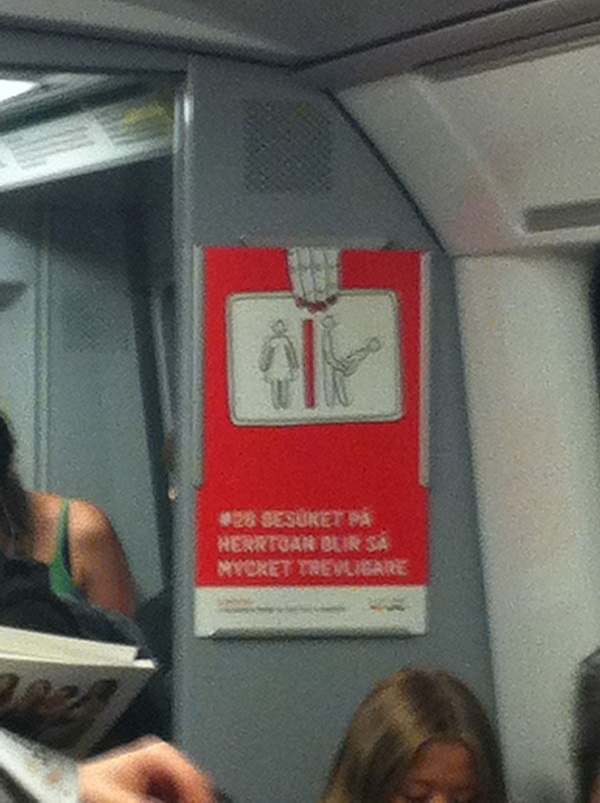Chapter 3 of Rick Steves’ Travel as a Political Act covers a broad range of topics: economics, diversity and immigration, the refugee crisis, sex, drugs, alcohol, nudity, and the wide range of European passions for their culture. I will only touch on a few of these topics here.
(This is the third part of my series of chapter-by-chapter reviews of Rick’s book. See the tag Travel as a Political Act for my reviews of other chapters.)
Economics and Politics
I enjoyed the way Rick illuminates the differences between the European and US approaches to solving problems. He clearly admires European socialism and the willingness of people to pay high taxes to buy big government that produces results. “Those results include an extensive social-welfare network that puts the financial burden of childcare, healthcare, education, and retirement on the collective shoulders of society, rather than on individuals.”
In Slovenia a new mother gets a full year’s maternity leave at nearly full pay. Throughout Europe governments subsidize higher education. Countries are investing in roads that last and trains that are very fast and reliable. In Switzerland the cost of garbage pickup is built into the price of garbage bags (which are therefore expensive). When the bag is full, people can just put it at the curb anywhere and it will be picked up. When you buy a new car in Europe, you pay up front for the cost of its disposal. In the US we would consider this to be bad for the economy because it would stifle sales of new cars.
Of course, Europeans don’t love paying high taxes, and sometimes the bureaucracy overreaches and becomes heavy-handed. Regulations can be excessive. Undoubtedly, the bureaucracy and regulation led to Brexit, and while Rick says he is “militantly optimistic” about the future of the EU, he is starting to wonder whether there will be increased destabilization as anger against globalization and anti-immigrant sentiments grow.
I wonder too.
Denmark
When I was in Denmark in 2012, I took a Bike with Mike tour of Copenhagen. At one point Mike told us about his cancer diagnosis from just two years earlier. He had to wait two days before he could have surgery after his diagnosis. The surgery and treatment cost him nothing. In the US many people go bankrupt because of catastrophic illness or injury. The Danish people put the common good ahead of individual achievement; Mike used the term “redistribution of wealth,” a concept that would be anathema to most Democrats as well as Republicans in the US.
You might wonder what makes people stay productive in a society that cares for those who don’t. What’s the incentive? Rick concludes that people in these countries recognize the value of their contribution to society as a benefit to the common welfare of all. It’s a mindset that is hard for Americans to wrap our brains around. Our approach is one of individual responsibility. Many of us who work hard think we shouldn’t have to take responsibility for those who can’t, don’t, or won’t.
I honestly don’t think the system that works in Denmark would work in the USA. We’re too committed to our “me first” attitude. (It’s what got the current White House occupant elected.) But I would like to see us learn something from the Europeans about how the government can provide services that would benefit all of us. Better infrastructure, healthcare, senior care, education, innovation: if these things were paid by a fair and progressive tax system, all of us would benefit. The wealthy business owners who pay more would have a healthy, happy, capable work force who would not have to worry about the cost of retirement.
I wish corporations didn’t have so much clout here. I wish the government weren’t so beholden to moneyed interests.
Peace, Diversity, and Immigration
Ireland. Corsica. The Basque region. Brittany. Catalunya. Wales. Scotland.
These places, to varying degrees, evoke the sometimes bitter struggle for local identity, separatism, and secession. Rick talks about “nations without states:”
That’s “nations”—groups of like-minded people, united by language, culture, and bloodlines—that don’t have an internationally recognized country to call home: the Basques, the Catalans, the Tiroleans, the Welsh, the Bretons, and so on.…How did these people wind up without a homeland? Either they were left out when modern maps were drawn, or their ancestors were “planted” there generations ago. History has demonstrated, again and again, that national borders that ignore ethnic realities will sooner or later bring big problems.
Borders
Many of the borders in Europe were drawn without regard for ethnic divisions. And in many instances ethnic minorities are intermixed with majority populations. Some of this happened through natural migration, but in many cases governments did it intentionally in order to dillute locally concentrated ethnic groups. The Protestant English came to Northern Ireland. Russians settled in the Baltic states and in Ukraine. And the Habsburgs planted Serbs along the border between Croatia and Bosnia as a buffer between the Austro-Hungarian and Ottoman empires. When Yugoslavia was formed after World War I by merging various territories that had formerly been parts of these two empires, and then broke up in the 1990s … well, we know how that turned out.
Similar things have happened elsewhere in the world. Rick mentions how the British imported Tamils from India to Ceylon (now Sri Lanka) as low-paid workers on tea plantations. After the British left, a 26-year war between the Tamils and the Sinhalese ensued. In a later chapter he writes about the Jews and Arabs in Israel and Palestine.
The USA has long been a place of “e pluribus unum.” We have (not always comfortably or successfully) celebrated our diversity. But assimilation of diverse ethnic and cultural groups is new for Europe. For a long time the Spanish government outlawed Catalan culture, language, even the flag. But now, as Barcelona has stood up to the government and even attempted secession, the culture is thriving. Catalan is the first language spoken in public schools in the region.
Immigration
The newer challenge for Europe is immigration. Many areas of Europe have been homogenous for centuries. But immigrants were imported—from Turkey to Germany, from North Africa to France, from Poland to Ireland—to do the work that native Europeans wouldn’t do. Combine that with the rapid aging of Europe and declining birth rates, immigrants are rapidly becoming a sizeable minority in many parts of the continent.
The recent refugee crisis is having a major impact on the EU. And here Rick provides a valuable insight:
I think the real refugee crisis is the human cost of a failed state. The refugees coming to Europe today are a direct result of poorly drawn borders by European colonial powers a century ago.… If Europeans (or Americans) complain about the hardship of housing those refugees, they should ponder the hardship brought about by their ancestors’ greedy colonial policies a century ago.
Rick says that the first thing Europeans should do is provide humane assistance, as doing so is also pragmatic. Germany has stepped up, taking in over a million refugees, mostly from Syria, in 2015. But that is not enough. Helping to find a solution to the situations that have led to the flood of humanity escaping war and heading to Europe is also essential.
It is ironic, I think, that we in the developed world are eager to capitalize on the expanded markets that come from globalization while resisting ownership of its effects on the developing world. We happily employ cheap labor to make our smartphones and our designer clothes. And we thirstily consume the oil produced in countries where human rights are at risk. We want open borders and free trade as long as it benefits us. This, of course, means things can never be truly open and truly free. And when destabilization results, we wash our hands unless we have an economic stake in the outcome.
Legislating Morality and Propriety
It has always struck me as odd (at best) and hypocritical (aw worst) to preach individual responsibility and yet to try to legislate private individual behaviors that don’t conform with a certain moral code. Rick is a well-known advocate for the repeal of marijuana laws in the US (he is on the board of NORML), and he admires the European approach to drugs and sex.
While countries differ, the egeneral European sentiment is not to make a law forcing someone to be what the majority considers “moral.” A European would assume that every person is a moral person, but each individaul has a slightly different morality. If one group gets to make their morality the law of the land, it infringes on another person’s civil liberties. So, rather than attempt to legislate morality, European law tolerates “immoral” acts as long as they don’t hurt someone else.
I admire this European pragmatism. Prostitution isn’t going away, so in many parts of Europe it is legal, regulated, and taxed. There’s still sex trafficking, but there’s also less violence and a reduction in the spread of HIV/AIDS and other sexually-transmitted diseases. Drug use isn’t going away, so it is likewise tolerated and regulated across the continent. Needle exchanges minimize the spread of disease, and drug abuse is treated more as a public health problem than a crime statistic. Teenage drinking isn’t going away, so when kids graduate from high school, parents join forces to hire buses or trucks to transport their children from one party to the next.
The Europeans are also more relaxed about sex than we are in the US. Rick talks about the challenge of filming in certain locations for his television program, which airs in many different US markets. Public television stations cannot afford the risk of fines for violating FCC regulations, so they tend to err on the side of caution. Nude art and nude beaches require careful editing. In Europe (both in public and on television), sex is treated much more casually.



Leave a Reply